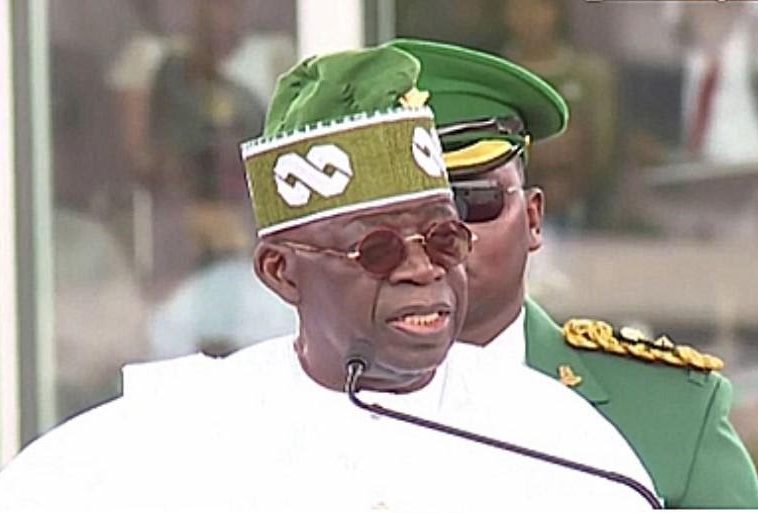Reflecting on this day, Wole Soyinka stated that “June 12, 1993, was not just a date; it was a watershed in Nigeria’s political history. It was a day that showed the world that Nigerians were ready for democracy.” June 12, 1993, is indeed a pivotal date in Nigeria’s political history. It signifies the day when Nigeria held what is widely regarded as its freest and fairest election. The annulment of this election by the military regime led to widespread turmoil and laid the groundwork for Nigeria’s eventual return to democratic governance. As Nigeria celebrates its Democracy Day today, let’s explore the historical context of June 12, its enduring impact, and the 12 essential lessons it offers for modern governance.
Former President Olusegun Obasanjo spoke about the significance of June 12. In one of his speeches, he opined that “June 12 represents the aspiration of Nigerians for a country where the people’s will is respected. It is a reminder of the sacrifices made for our democracy.” Nigeria’s journey to the historic June 12 election was shaped by a complex interplay of colonial legacies, post-independence struggles, and military coups.
After gaining independence from British rule in 1960, Nigeria experienced a series of military coups that disrupted its nascent democratic institutions. The military’s dominance continued until the mid-1980s, when General Ibrahim Babangida came to power in a coup in 1985, promising a transition to civilian rule.
Babangida’s administration initiated a series of political reforms aimed at returning Nigeria to civilian governance. The process culminated in the presidential election held on June 12, 1993. The two main candidates were Chief Moshood Kashimawo Olawale (MKO) Abiola of the Social Democratic Party (SDP) and Alhaji Bashir Tofa of the National Republican Convention (NRC). The election was notable for its high voter turnout, transparency, and relatively peaceful conduct.
History records that Abiola won the election with approximately 58% of the vote. However, before the final results were officially announced, the military regime annulled the election, citing alleged electoral irregularities, a move that triggered nationwide protests and a severe political crisis. MKO Abiola’s famous quote during this period, “You cannot shave a man’s head in his absence,” encapsulated the widespread defiance and the resolve of Nigerians to reclaim their democratic rights.
12 Lessons for Modern Governance
The necessity of free and fair elections
The events of June 12, 1993, underscore the critical importance of free and fair elections in a democracy. The success of the election, despite its annulment, demonstrated that Nigerians were ready and willing to engage in a democratic process. Modern governance must prioritise transparent electoral processes to ensure legitimacy and public trust.
Upholding electoral integrity
Electoral integrity is essential for the sustainability of democracy. The annulment of the June 12 election eroded public trust in the electoral system. To avoid similar crises, governments must establish robust mechanisms to protect the integrity of elections and ensure that the results reflect the will of the people.
The Role of Civil Society
Civil society organisations played a pivotal role in the aftermath of the June 12 annulment. Groups such as the Campaign for Democracy and the National Democratic Coalition (NADECO) mobilised public opinion and advocated for democratic principles. This highlights the crucial role civil society can play in holding governments accountable and fostering democratic governance.
Respect for the Will of the People
The annulment of the June 12 election was a blatant disregard for the will of the people. This act not only undermined the legitimacy of the government but also damaged public trust in the political system. Modern governments must respect electoral outcomes to uphold democratic values and maintain stability.
Resilience and Commitment to Democracy
The resilience shown by Nigerians in the face of adversity is a powerful lesson for modern governance. Despite the challenges and setbacks, the commitment to democratic principles remained strong. This resilience is crucial for sustaining democracy, especially in countries facing political instability.
The Cost of Political Repression
The period following the annulment of the June 12 election was marked by widespread political repression. The government’s heavy-handed tactics only fueled further dissent and unrest. This serves as a reminder that political repression can have long-term negative consequences, deepening divisions and undermining stability.
The Importance of Political Dialogue
In times of political crisis, dialogue is essential. The failure of the military regime to engage in meaningful dialogue with pro-democracy activists exacerbated the crisis. Modern governments must prioritise open and inclusive dialogue to address political grievances and foster national unity.
Leadership Accountability
The June 12 crisis highlighted the need for accountable leadership. The arbitrary annulment of the election was a clear abuse of power. For modern governance, it is essential that leaders are held accountable for their actions and decisions, ensuring that they act in the best interests of the populace.
The role of the judiciary
An independent judiciary is vital for upholding democratic principles. During the June 12 crisis, the judiciary was unable to effectively challenge the actions of the military regime. Strengthening judicial independence is crucial for protecting the rights of citizens and ensuring the rule of law.
Media Freedom
The media played a significant role in documenting and reporting the events surrounding the June 12 election. However, the media also faced significant repression. Modern governance must ensure media freedom, as a free press is essential for transparency, accountability, and informed citizenry.
The Power of Peaceful Protest
The peaceful protests that followed the annulment of the June 12 election demonstrated the power of non-violent resistance. These protests were instrumental in maintaining pressure on the military regime. Modern governance should recognise the legitimacy of peaceful protests as a means for citizens to express their views and demand accountability.
READ ALSO: Kenya’s Urban Development: Navigating Major Challenges
Learning from History
Finally, the legacy of June 12 serves as a reminder of the importance of learning from history. The events of 1993 and their aftermath provide valuable lessons for current and future leaders. By reflecting on these lessons, modern governments can avoid repeating past mistakes and work towards building more robust and inclusive democratic institutions.
June 12, 1993, stands as a monumental day in Nigeria’s political history. It represents the Nigerian people’s unyielding desire for democratic governance and the lengths to which they are willing to go to achieve it. The annulled election, the subsequent political turmoil, and the eventual transition to civilian rule have left an indelible mark on the nation’s democratic journey.
The 12 lessons derived from the June 12 experience highlight the essential elements of modern governance: the necessity of free and fair elections, the importance of civil society, the respect for the will of the people, and the need for resilient democratic institutions. These lessons are not only relevant for Nigeria but also for any nation striving to build and sustain democratic governance.
By reflecting on the lessons of the past, modern leaders and citizens alike can work towards a future where democratic principles are upheld and the voices of the people are heard and respected. The journey is ongoing, but the spirit of June 12 remains a powerful reminder of what can be achieved when a nation stands united in its pursuit of democracy and justice.


